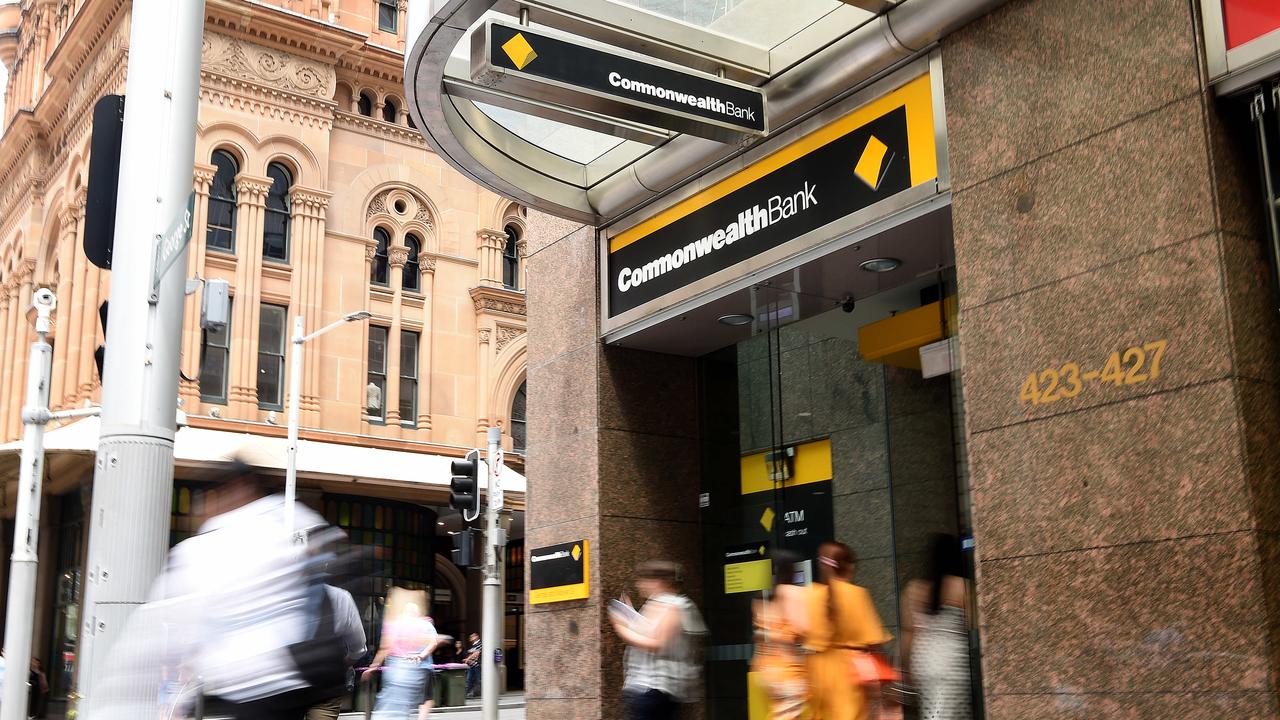Proxy says ‘vote no’ on CBA CEO Matt Comyn bonus
ISS recommends a “no” vote against the CBA’s remuneration report and generous $1.6m equity grant to CEO Matt Comyn.

Influential proxy adviser ISS has recommended a “no” vote against the Commonwealth Bank’s remuneration report and generous $1.6m equity grant to chief executive Matt Comyn, saying it is “regressive” and inconsistent with the treatment of regular staff in recent pay negotiations.
The strongly worded report issued ahead of CBA’s October 13 annual meeting is a repudiation of Mr Comyn’s so-called restricted share units, a scheme recently imported from the US where “at risk”, performance-based remuneration is substituted for more certain pay outcomes.
ISS was also highly critical of the CBA board’s stated intention to provide Mr Comyn’s benefit in another form, including deferred cash payments, if the equity grant is voted down.
The firm said shareholders had effectively been deprived of the right to approve or reject a contentious component of the bank’s remuneration structure.
“This represents a regressive change which is inconsistent with shareholder outcomes,” the report said. “The proposal is not aligned with historical shareholder expectations in the Australian market for long-term equity grants to vest upon improved shareholder outcomes and shareholder interests.”
The change, according to ISS, was similar to deferred fixed remuneration and the “combined incentive plans” introduced in 2018 by some companies, such as National Australia Bank, which were broadly rejected by investors.
Mr Comyn’s proposed pay in 2021 includes $2.3m in fixed remuneration, up to $2.16m in variably short-term pay, up to $1.6m in RSUs, and a similar amount in performance rights.
While CBA said in its notice of meeting that the RSUs would be subject to a pre-grant assessment, with potential adjustments if “material issues” were identified, there are no traditional performance hurdles.
The bank said the assessment process would consider “future financial factors and individual non-financial performance of leadership and strategy implementation”, in conjunction with malus and clawback provisions.
ISS said in its assessment there were concerns that Mr Comyn could receive too many RSUs, with the maximum award of $1.6m representing 70 per cent of his fixed remuneration.
“The removal of objective performance conditions in the RSUs is not consistent with market practice or shareholder expectations for long-term equity grants to be subject to performance measures which permit vesting upon improved long-term shareholder outcomes,” ISS said.
“The RSUs may be regarded as deferred fixed remuneration, and represent a material increase to the CEO’s total fixed remuneration.
“There has not been any material reduction in the total remuneration opportunity.”
ISS said Mr Comyn’s generous equity grant compared with recent enterprise agreement negotiations with the Finance Sector Union, in which CBA reportedly offered staff earning less than $75,000 a year 2 per cent pay increase for two years.
Those earning more than $75,000 would get a pay rise of 1.5 per cent, while staff on more than $110,000 would be subject to a pay freeze in the first year and an undetermined increase in 2021.
ISS urged investors to vote against the remuneration report.
It said CBA’s financial performance in 2020 declined for the fifth consecutive year.
This compared with high vesting for the bank’s long-term incentive at 84 per cent of the maximum, including 97 per cent vesting of the “customer satisfaction” performance measure.
The latter was arguably flawed in light of the poor customer practices identified in the financial services royal commission.
Elsewhere, ISS said the board’s discretion to award the CEO an additional 10 per cent in his short-term incentive was “out of step” with the economic climate and uncertainty facing the bank, its shareholders and many of CBA’s customers, people and communities. It was also inconsistent with shareholder expectations for awards of bonuses above targets.
“Bonuses appear to be awarded to improve and rectify systemic ‘day job’ items and cultural issues, which places unwarranted emphasis on fixing processes which have been and are in the control of management, rather than improvement in actual performance,” the proxy adviser said.
In addition, the $891,111 fee paid to CBA chair Catherine Livingstone was “well above” the median for companies of a similar size.
The bank’s net profit in 2020 was down 14.5 per cent from $8.7bn to $7.4bn.
CBA’s share price for the financial year fell 16.1 per cent to $69.42.






